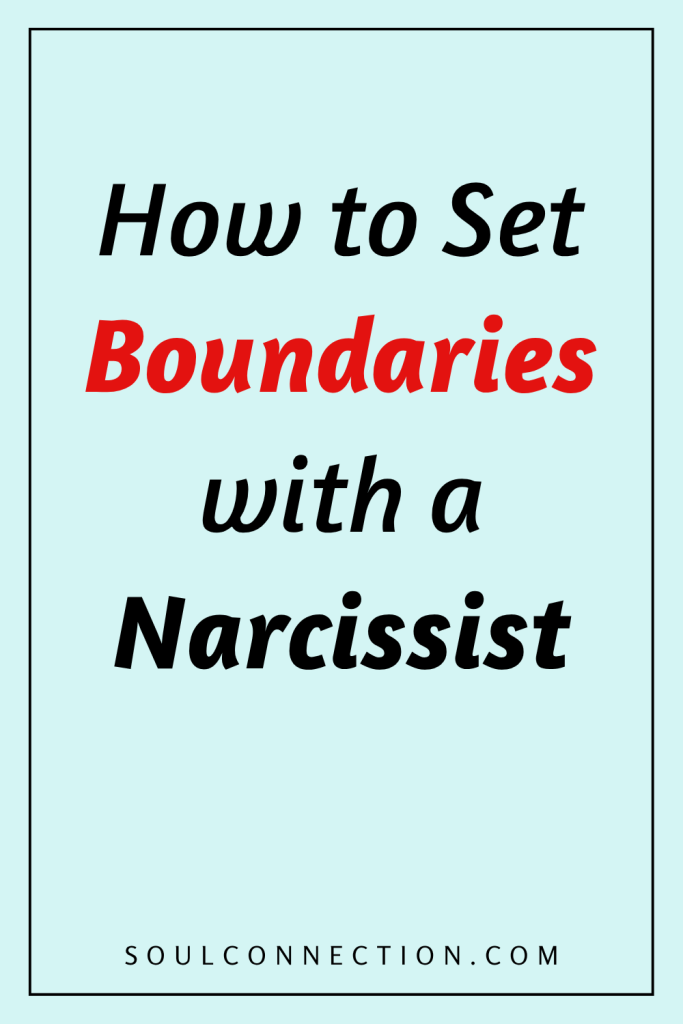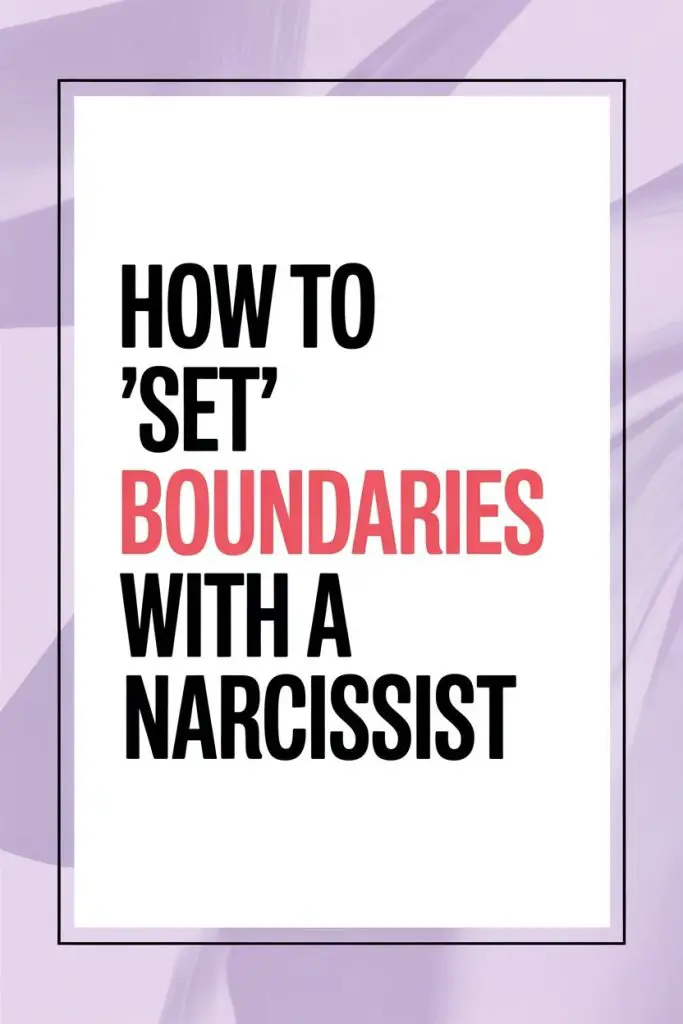Want to experience the emotional equivalent of wrestling a greased pig? Try setting boundaries with a narcissist. It’s an Olympic-level sport, only with more gaslighting and fewer medals.
But don’t panic—there is a way to keep your sanity (and maybe even your sense of humor) intact.
What Makes Narcissists So Allergic to Boundaries
Narcissists thrive on control and validation like toddlers thrive on sugar. The moment boundaries enter the chat, they hear “personal attack” and not “healthy relationship.”
Suddenly, you’re not the supportive sidekick they expected, but a rogue agent with opinions and (how dare you!) needs.
This allergic reaction is why your average narcissist will twist, turn, and tantrum at the mention of the word “no.” It’s not that your boundaries are unreasonable—it’s just that their reality doesn’t really allow for them.
Deciding on Your Non-Negotiables
Before attempting to set limits, figure out what you actually need. Not what would be nice, but what’s non-negotiable for your own well-being.
Bathroom privacy, time with friends, or simply not being yelled at for using the “wrong” brand of peanut butter—these aren’t selfish; they’re basic human rights.
Jot down your must-haves. The act of writing it out can clarify things and keep you steady when the guilt trips start rolling in. Spoiler alert: They will.
The Art of Saying No Without Writing a Novel
Narcissists treat boundaries like a challenge on a reality show. The more you justify or explain, the more ammunition you hand over for debate, denial, or some truly creative manipulation
. Short, clear statements are your best mate: “I’m not comfortable with that.” Or, “That doesn’t work for me.”
No need for essays. The more words, the more wiggle room they’ll find.
Consistency Beats Brilliance
The first time you hold a boundary, the narcissist might act as though you’ve just declared war. This may involve sulking, silent treatment, or a dramatic retelling of your “cruelty” to mutual friends.
Consistency is key here. Changing your boundary because they whined enough only teaches them that persistence pays off.
Hold firm, even if your knees are knocking. Each time you reinforce your limits, you’re retraining both them and yourself.
Expect the Pushback (and the Guilt Olympics)
Get ready for a performance worthy of Broadway. Narcissists excel at guilt trips, blame-shifting, and even a bit of emotional blackmail. There might be tears, rage, or a long monologue about how deeply you’ve hurt them.
Resist the urge to fix their feelings. Boundaries aren’t an attack—they’re a life vest. If they take offense, that’s their business, not yours. It’s not your job to manage their emotional response, tempting as it might be to play peacemaker.
Don’t Debate Your Boundaries
If you’re hoping for a rational discussion about why your limits matter, prepare for disappointment. Narcissists love a circular argument, especially ones that end with them as the misunderstood victim.
Refuse to engage in endless justifications. “This is what I need” is enough. If they keep pushing, repeat yourself and exit the conversation if possible.
You’re not a lawyer in a courtroom; you don’t need to win a case, just state your terms.
Limit the Share, Spare the Drama
Oversharing your reasons or emotional state gives a narcissist more material for manipulation. Keep your explanations minimal and neutral. “I can’t do that tonight,” instead of, “I’ve had a really hard day and need time to recharge.”
Protecting your own emotional privacy isn’t cold—it’s wise. Save the deep dives for friends who actually care.
Use “I” Statements, Not Accusations
“I need space” lands a thousand times better than “You never give me space.” Narcissists are allergic to blame and will unleash a counterattack within seconds.
Phrase boundaries around your own needs. “I’m stepping outside for air,” is less likely to trigger World War III than, “You’re suffocating me.” (Not that you’re wrong, but calmness wins more ground.)
Set Consequences You Can Actually Enforce
A boundary without a consequence is just a polite suggestion. Decide in advance what you’ll do if your limit is ignored. Will you leave the room? Hang up the phone? Cancel plans?
The trick: Only set consequences you’re actually prepared to follow through on. Trying to bluff a narcissist is like playing poker with your cards face-up. Save yourself the trouble.
Keep Your Support Squad on Speed Dial
Dealing with a narcissist’s boundary-busting antics can leave even the calmest soul feeling like they’re losing the plot. Call in reinforcements—a therapist, a trusted friend, or anyone who can remind you you’re not unreasonable.
Sometimes it takes an outside voice to validate your reality when it’s being twisted into a pretzel. Don’t be shy about asking for backup.
Watch for Escalation (and Stay Safe)
Setting boundaries with a narcissist can trigger anything from sulky silence to full-blown rage. If things start feeling unsafe—emotionally or physically—take it seriously.
Your boundaries are important, but so is your safety.
Plan ahead for moments when you might need to physically remove yourself or call for help. There’s no badge of honor for sticking it out at your own expense.
Boundaries Aren’t Cruelty—They’re Self-Respect
Despite what the narcissist may claim, you’re not the villain for wanting some space or respect. Boundaries don’t make you “selfish” or “cold”—they make you a grown adult who values their own well-being.
Every time you hold a boundary, you teach the narcissist (and yourself) that you matter. And that’s something worth repeating.
Reframing the Guilt
The guilt fairy pays an extra visit when you set limits with someone who thrives on your compliance. Expect to feel uncomfortable, especially if you’ve been trained to put their needs before your own.
Flip the script: The discomfort is a sign you’re doing something new, not something wrong. Growth isn’t supposed to feel like a spa day.
What If They Never Change?
Spoiler: Most narcissists don’t magically morph into self-aware saints because you asked nicely. The main goal isn’t to fix them, but to protect your own mental and emotional health.
Will they ever respect your boundaries? Maybe. More likely, they’ll grudgingly accept you’re not as easy to boss around anymore. That’s still a win.
If You Have to Leave
Some situations can’t be salvaged. If your boundaries are repeatedly violated—or things escalate—leaving may be the healthiest option.
No shame in protecting yourself. Exiting a relationship with a narcissist doesn’t mean you failed; it means you finally put yourself first.
And if anyone says otherwise, they can take a long walk off a short pier.
Onward to Sanity
Setting boundaries with a narcissist isn’t for the faint-hearted.
It takes guts, patience, and a sense of humor (preferably dark). Each “no” you utter is a small act of rebellion, a sign you’re rediscovering your own value.
Small steps add up. Maybe you won’t turn your narcissist into a model citizen, but you can reclaim peace, self-respect, and the right to your own space—one boundary at a time.


